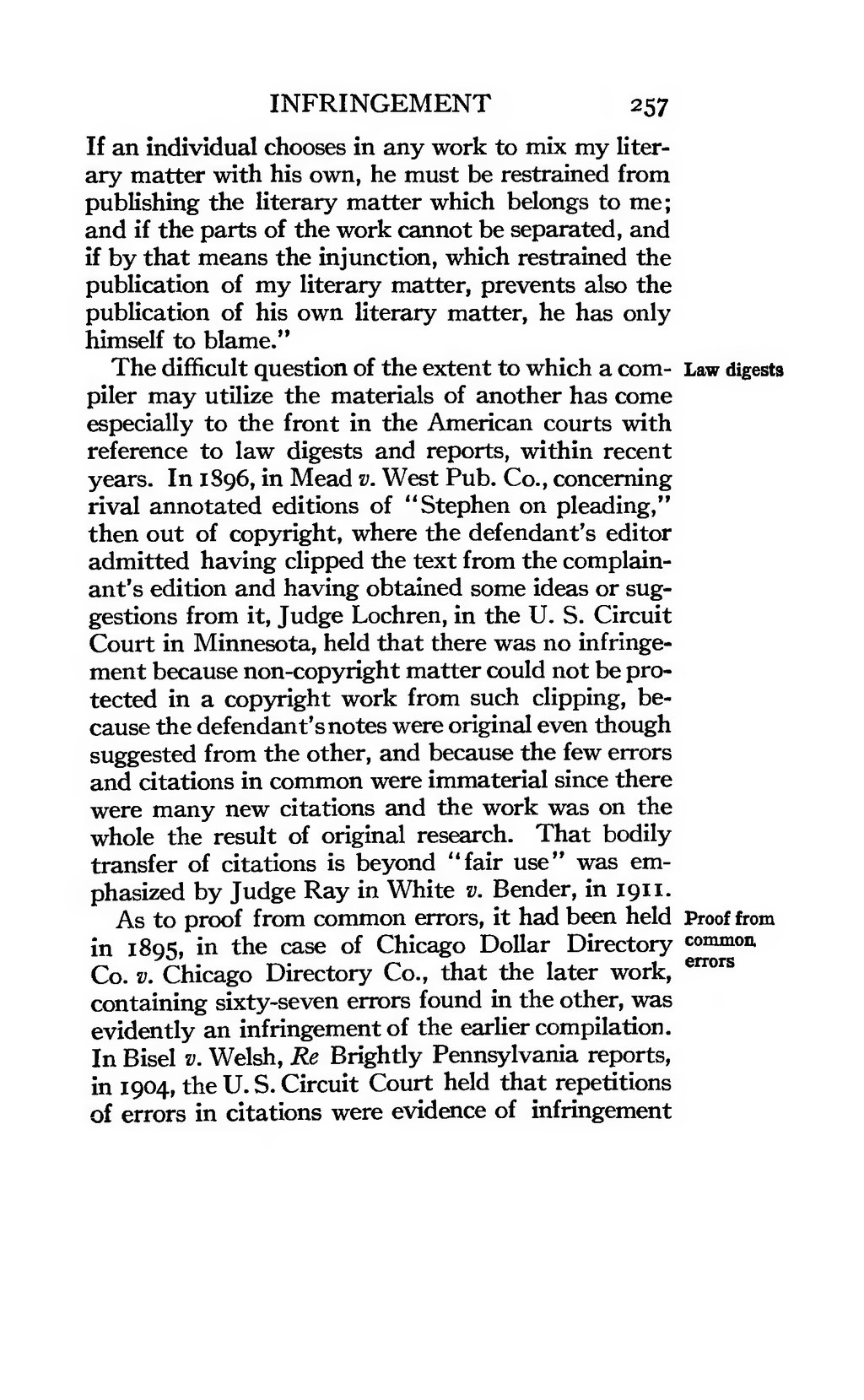If an individual chooses in any work to mix my literary matter with his own, he must be restrained from publishing the literary matter which belongs to me; and if the parts of the work cannot be separated, and if by that means the injunction, which restrained the publication of my literary matter, prevents also the publication of his own literary matter, he has only himself to blame."
Law digests The difficult question of the extent to which a compiler may utilize the materials of another has come especially to the front in the American courts with reference to law digests and reports, within recent years. In 1896, in Mead v. West Pub. Co., concerning rival annotated editions of "Stephen on pleading," then out of copyright, where the defendant's editor admitted having clipped the text from the complainant's edition and having obtained some ideas or suggestions from it, Judge Lochren, in the U. S. Circuit Court in Minnesota, held that there was no infringement because non-copyright matter could not be protected in a copyright work from such clipping, because the defendant's notes were original even though suggested from the other, and because the few errors and citations in common were immaterial since there were many new citations and the work was on the whole the result of original research. That bodily transfer of citations is beyond "fair use" was emphasized by Judge Ray in White v. Bender, in 1911.
Proof from common errors
As to proof from common errors, it had been held in 1895, in the case of Chicago Dollar Directory Co. v. Chicago Directory Co., that the later work, containing sixty-seven errors found in the other, was evidently an infringement of the earlier compilation. In Bisel v. Welsh, Re Brightly Pennsylvania reports, in 1904, the U. S. Circuit Court held that repetitions of errors in citations were evidence of infringement